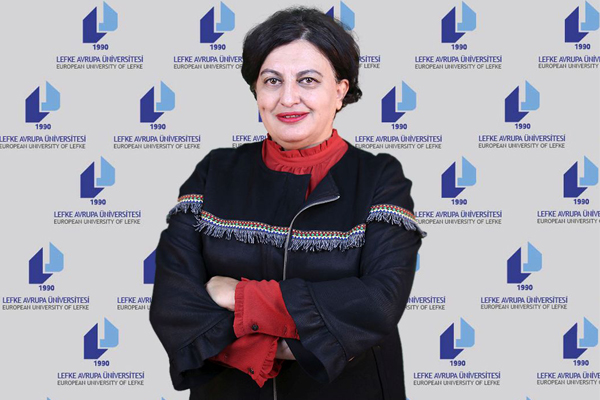EUL Academician Aslay discussed “First Aid in Food Poisoning”

European University of Lefke (EUL) Vocational School of Health Services, Department of First and Emergency Aid Lecturer Asst. Prof. Dr. Semra Aslay made statements on the subject of “First Aid in Food Poisoning”.
“Poisoning occurs when a harmful substance is taken into the body or substances that are not normally included in this group but are considered toxic because they are taken in high amounts. It has a wide range including insect bites, smoke, plants, beverages, medicines, pesticides,” Aslay pointed out that food poisoning is especially prominent these days when the heat makes itself felt.
“Many food, especially milk and dairy products, which can be easily kept outside if the ambient temperature is suitable under normal conditions, can spoil very quickly with the increase in seasonal norms in summer. Even though storage methods in the home environment work in the autumn-autumn period, the food left on wire cabinets, countertops or desktops in summer should not be consumed.” Aslay shared the following information in her statements; Meat and meat products, green vegetables, sweetener products and sauces that are kept in markets, cafes or restaurants where there is no fast circulation; salmonella, shigella, e.coli, b. cereus are the preferred environments for the reproduction of highly toxic bacteria such as cereus. Canned food should be consumed when opened, and additives such as ketchup and mayonnaise, which have a limited period of use even if they are kept in a closed environment, should be checked intermittently and destroyed when necessary.
If the storage conditions are not suitable, stored food, flavoured food and acidic drinks become a suitable environment for the growth of bacteria within 24 hours. It is very important how many minutes after eating such foods the first symptom appears. The general opinion is that the earlier the symptomatic, the stronger the bacteria.
In such cases, nausea, vomiting, double vision, convulsions and even seizures may occur. People who eat the same food do not necessarily have the same symptoms because their immune systems are different. In order to minimise the effects of the nausea-vomiting-diarrhoea triangle, the emergency service should be contacted or the 112 emergency response system should be activated.
Since some mushroom varieties are directly poisonous regardless of the quantity, unfortunately undesirable conditions may develop shortly after eating. Insufficiently hygienic storage containers in crowded environments and places of entertainment or in places where crowds consume food are another cause of poisoning.
Especially in food poisoning, it is a method to try to induce vomiting without delay, but without forcing the person to vomit enough to cause breathlessness. However, because of the bacteria in question, the effects can be very dangerous even if the amount of food going into the stomach is very low.
The person who is likely to be poisoned should never be laid down. Forced vomiting should not be attempted, 112 should be called urgently. The diameter of the pupils, breath odour, whether there is trembling or not, whether there is a seizure or not should be noted. There is no scientific evidence that feeding yoghurt or any other food prevents bacterial poisoning. Caution should be taken against unexpected vomiting attacks and the patient’s airway patency should be maintained at all times. Forcing the patient to vomit may worsen the situation if there is no desire to vomit. Continuous airway patency is more important than removing the poisoning agent from the body as fast as possible.
If the person requiring first aid is conscious, it must be learnt whether the person has diseases such as diabetes, epilepsy, etc. that may unexpectedly worsen the condition. Especially when vomiting or diarrhoea develops, the first priority is to replenish the lost fluid. This is only possible in hospitals. Therefore, the first-aider should remember that even if the poisoned person is conscious, breathing and pulse are normal, a poison that is ready to enter the bloodstream at any time and has been taken with food is circulating in the body.
Unfortunately, since digestive poisoning is the most common, the most serious consequences are seen in these cases. As of the summer months, food storage and consumption should be more selective and hand-mouth hygiene should be meticulously ensured. Only when these conditions are met, taking food can mean healthy food consumption.
